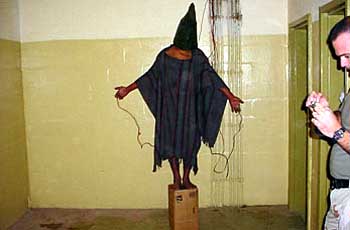Random Thoughts on Chinese and Western Perspectives On Media
East is East, and West is West, and never the twain shall meet
Rudyard Kipling, The Ballad of East and West
Will Chinese and western perspectives on media ever meet on common grounds? EastSouthWestNorth is largely an English-to-Chinese translation website for Chinese media, and it is therefore in a unique position to address issues about the differences between Chinese and western media. Historically, a significant part of the theoretical foundations of journalism in China (that is, apart from the thoughts of Marx, Lenin and Mao) was imported through translated textbooks used in schools of journalism in the United States of America. Much discussion about Chinese media is therefore focused on the comparison against the hypothetical 'gold standard' as practiced in the United States of America.
I do not intend to present a comprehensive review here. Instead, I have recorded some random thoughts based upon some things that are present on EastSouthWestNorth.
Here is Joyce Lau's notes from a media conference. This is an example of the twain not meeting. It was after reading this blog post that I decided to write something.
At a media conference at the London School of Economics a few months ago, a Chinese woman accused me (representative of the entire "Western media") of not taking into account "social stability" in reporting on Tibet. Basically, she said I was irresponsible for printing things that might upset Chinese people.
I responded that, broadly, "Western media" could not take into account the feelings of all the citizens of every country before printing articles, nor were newspapers responsible for what people felt, or did, after they read bad news. Good, bad and ugly -- if it happens, it goes out as accurately and fairly as we can manage it.
When I said we didn't take "social stability" into account, I was referring to not bending to self-censoring bad news that the Communist Party might find "destabilizing." I was not inferring any lack of personal sympathy or sense of responsibility over those we cover.
I'd figure that these so called "media experts" would understand this basic distinction between professional news judgment and private emotion and ethics. It's something news journalists deal with every day.
I over-estimated the egg-heads.
Another Chinese woman shot back at me, with some wishy-washy view that journalism should "not upset people, but help governments help the world" -- an argument that sounds pretty, but blurs that important line between journalistic objectivity, and simple-minded well-meaningness. The egg-heads didn't see through the thinly veiled excuse for censoring news the Party doesn't like. They actually applauded the girl.
Then some politically correct academic types (mostly young Brits) jumped on me, accusing Western media (i.e. "me") of "not caring."
Boy, these were the dumbest "smart" people I've ever met. Obviously, printing negative news with the knowledge that it might upset some people is different than being personally cold-hearted. That's like calling the UN a big bunch of meanies for always making Africans feel bad about their famines.
One of the earliest entries on EastSouthWestNorth (v 2.0) is The Human Pyramids of Abu Ghraib - Part I. This is about as negative and destabilizing as news can get for a ruling government and occupying force. Nevertheless, the photos got out -- but not everything possible. As seemingly extensive as the published photos were, there were many more photos and videos that were never published by the media, which had them in their possession. The media reported that American Senators and Congressional Representatives were given special showings and they came out looking all shook up. But the people were never shown those additional materials.

But at least, the American media thought about their decisions, which they made on their own. Here is a good link: (Salon) Abu Ghraib and Salon, Joan Walsh, February 18, 2006. In any case, you should never expect that the media (either the American media today or the Chinese media some day in the future) to be completely open all the time about everything possible. There will be some instances in which some kind of restraint is exercised, whether it is for national security, human dignity, personal feelings or something else. Those boundaries cannot be defined beforehand. Instead, it will be like the American Supreme Court Justice Potter Stewart's famous definition of 'hard pornography': "I know it when I see it." In the meantime, we can debate the specific actions.
The most popular post on EastSouthWestNorth is The Children of Iraq. It has been seen by several million people since 2004. It is very simply a collection of photos of Iraqi children. It does not contain any text beyond the heading "The Children of Iraq." If EastSouthWestNorth had a comment function, the thread would probably run into the hundreds of thousands.
Over the years, I used Technorati to track back to other websites to see what people have to say about these photos. As I expected, there were very diverse opinions. From one extreme, someone said that she viewed the photos at her office and broke down crying. From another extreme, someone said that most of the photos must have been faked -- for example, the little girl was just playing a game with a friendly soldier instead of being searched.

Certainly, a number of people found these photos disturbing for various reasons (such as anti-American propaganda to destabilize democracy in Iraq; trespassing the privacy of Iraqi children during their sufferings, etc). Am I to be held responsible for upsetting people with these photos? All I can say that these things did occur, and hiding them don't make them go away. Instead, hiding them will make sure more of the same occur. If you think that these things are okay, there is no need to hide them. If you think these things are not okay, you ought to do something to stop them. That was my unstated message.
Another constant subject at EastSouthWestNorth is the "human flesh search engines." I just checked Google News, and here are some prominent western media articles:
I observe that there is an asymmetry here in Chinese and western media. Who has ever heard of "human flesh search engines" in the United States of America? The term is never used. Cyberspace vigilantism exists in the United States of America, but not to the extent that it does in China in terms of ferocity and damage.
Thus, when I first began the human flesh search engines in China, certain western/ex-pat types thought that my imagination was running wild again. As far as they are concerned, there could be no such thing. Why not? It had never occurred in the history of the advanced cyber nations. Therefore, it cannot occur in China.
But today, this is accepted by western media as fact. It is said to be a "unique Chinese characteristic."
The above point leads more generally to the asymmetry in Chinese and western media. The traditional model is that the ideal has been defined in the American model, wherein freedom of press and speech are enshrined in the Constitution. Meanwhile, China is playing catch-up and its progress is measured by how close it is getting to the American model.
Anyone who is actually familiar with the reality of American media may think that it is a bad idea for China to get its own Fox News channel. I am not sure that China wants a perfect copy of the American mediascape. Who needs a free and independent commercial television channel advocating the armed liberation of Taiwan or nuking Japan? Similarly, I am fairly sure that China does not want a politically divisive mediascape as in Taiwan. I would rather prefer to see Chinese media evolve from the current "one-message hall" into something with "unique Chinese characteristics" -- whatever that is.
Discussions of the openness of Chinese media have focused almost exclusively on the realm of politics/current affairs, where the hand of state control is highly visible. In the other realms (such as entertainment, sports, society and culture), the Chinese Internet has made great progress. In fact, Chinese websites have gone farther their American counterparts might go in certain aspects.
This gets back to the reason why I created this post. This is because I came across some truly shocking photos on the Chinese Internet. I could just re-post them right here and shock the hell out of people. But I felt that I need to say that such photos are fairly commonplace in China. For example, this set was found at a Computer Graphic Animation bulletin board system.
You can come up with the usual objections about these photos being upsetting, offensive, repulsive, intrusive, invasive etc. But the reality is that this is what the Chinese Internet is willing to carry today. Five years ago, this is impossible. Ten years ago, there was no Chinese Internet. We are witnessing progress (for better or worse) as it happens.
Here is the (NSFW) link.